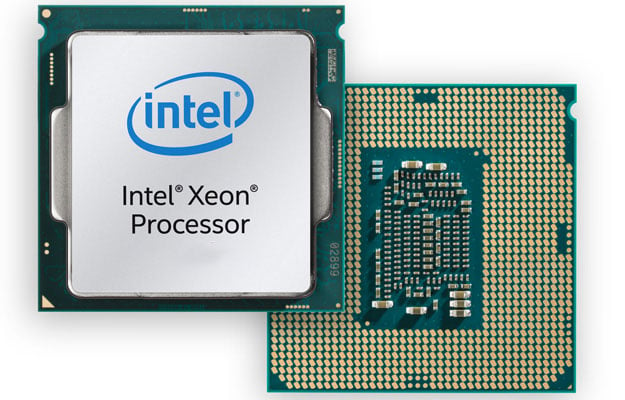Intel Confirms Coffee Lake-S Based 8-Core Xeon-E Mainstream Server Processors

A visit to Intel's website reveals that the company is prepping an 8-core Xeon-E processor for the mainstream server market. While nothing has been announced yet, the entry for the upcoming part is burrowed in Intel's Resource & Design Center and can be found by doing a search for Coffee Lake-S, then hitting the Technical Library tab. This brings up a listing for a "Xeon-E Coffee Lake-S 8C Processor E Family ES - QQM5, QQM6, DCL" that was last updated earlier this month.
Coffee Lake-S is the name for Intel's 8th generation Core, Pentium, and Celeron processor families, and it was the first to bring 6-core computing to the mainstream consumer market. It will likely be the architecture that introduces 8-core consumer processors to Intel's product stack as well, though we'll shelve that conversation for another time. In the more immediate future, Intel looks to be focusing on its Xeon line.
Intel rolled out its Xeon E3 v6 product line more than a year ago, at the time bringing its Kaby Lake architecture that had already launched in the consumer market over to its mainstream server sector. Now it's getting ready to do the same with its 8th generation Coffee Lake-S architecture.
One thing worth mentioning is that Intel has already ported its 8th generation architecture to Xeon, including the Xeon E-2186M and Xeon E-2176M, both of which are 6-core chips. They are also both mobile parts. The CPU that shows up in Intel's Resource & Design Center is a desktop processor, presumably as part of its Xeon E v7 product line that will feature chips ranging in core count from 4 to 6 cores.
The mystery 8-core chip in question is listed as an ES part, meaning it's an engineering sample, a usable piece of silicon that is close to a finished product. Intel might make some tweaks to the specs before it launches to the public, but typically once a processor reaches the ES state, a full release isn't too far behind.
Where things go from there remains to be seen. Intel has some catching up to do with AMD in regards to offering consumers the same number of cores and threads. While Intel's chips generally offer better single-core performance than AMD at any given clockspeed, the advantage flips over to AMD when dealing with heavily multi-threaded workloads, with first- and second-generation Ryzen offering 8-core/16-thread processor options (and Threadripper getting ready to hit 32 cores and 64 threads).
Look for Intel's updated Xeon E product line to debut sometime next month, or thereabouts.


